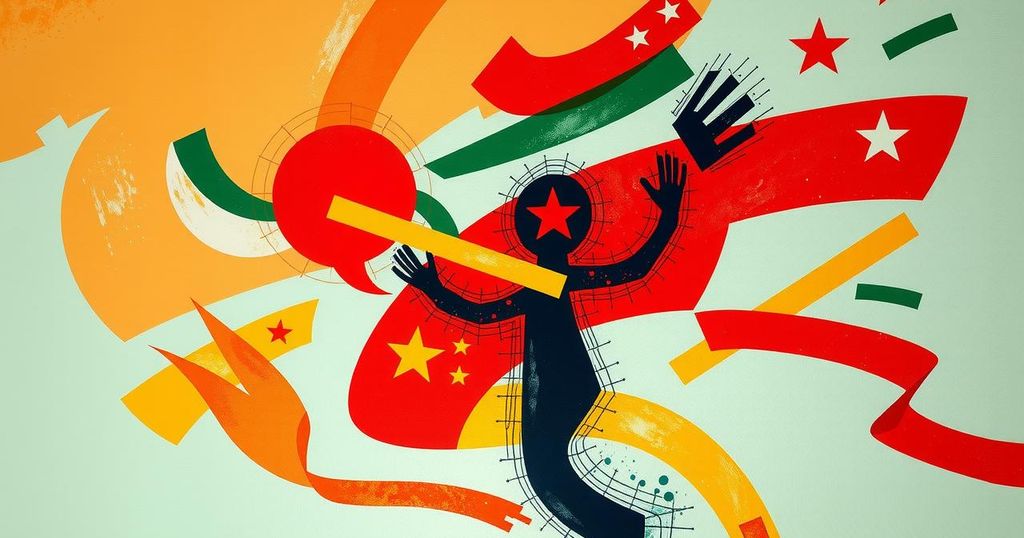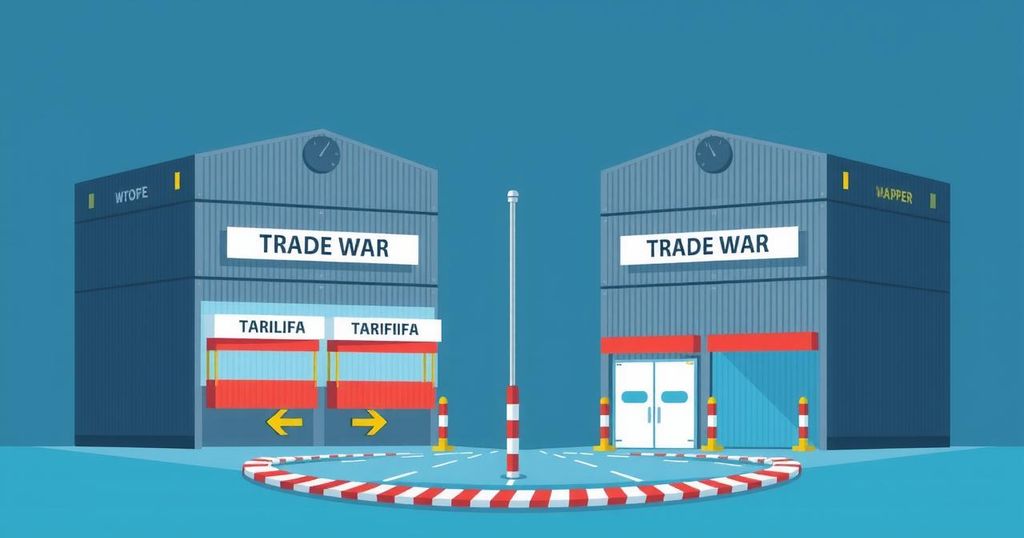Political Turmoil in Bangladesh: Yunus’ Interim Government and Relations with China and India
Bangladesh is experiencing political upheaval under interim leader Muhammad Yunus, following Sheikh Hasina’s resignation. Yunus is seeking to strengthen ties with China while relations with India are strained. Despite hopes for a meeting with Modi at an upcoming summit, concerns about extremist violence against minorities persist, highlighting the challenging political landscape.
Bangladesh is currently facing significant political instability following the appointment of Muhammad Yunus as the head of the interim government. The resignation of Prime Minister Sheikh Hasina has heightened speculation about possible military rule and a state of emergency. Meanwhile, Yunus has traveled to China’s Henan province, reflecting a shift towards closer ties with China amid deteriorating relations with India.
Initially, Yunus intended to visit Delhi and sent a request to the Modi government; however, after receiving no response, he opted for China. Bangladesh is now hopeful for a potential meeting between Yunus and Modi during the upcoming BIMSTEC Summit in Bangkok on April 3-4. Mohammad Jashim Uddin, the foreign secretary of Bangladesh, indicated that they are ready for discussions and eagerly await a positive response from India.
During his tenure, Yunus has been criticized for overlooking the targeting of minorities, particularly Hindus, by radical groups following Hasina’s resignation. New Delhi has condemned these attacks, emphasizing that the protection of minorities should be the interim government’s primary focus. However, extremist forces appear to be gaining strength, worsening the plight of minorities in Bangladesh.
Under Yunus’s leadership, the interim government has prioritized strengthening relations with Pakistan and China, neglecting its historically solid diplomatic ties with India. As political unrest simmers, the grassroots public unrest intensifies, leading to demonstrations across the country.
The political landscape in Bangladesh has become increasingly tumultuous since the interim government assumed power. While a coalition of various political factions formed to remove the Awami League government has begun to fracture, recent violence, such as a clash in Noakhali district that left several people injured, underscores the ongoing conflict.
In summary, Bangladesh is experiencing political turmoil under the interim leadership of Muhammad Yunus following Sheikh Hasina’s resignation. The government has struggled to maintain diplomatic relations with India while fostering ties with China and Pakistan. The situation for minorities remains dire, raising concerns about growing extremism. As civil unrest grows, the potential for a meeting between Yunus and Modi may remain uncertain amidst the ongoing difficulties faced by the nation.
Original Source: www.india.com








Post Comment